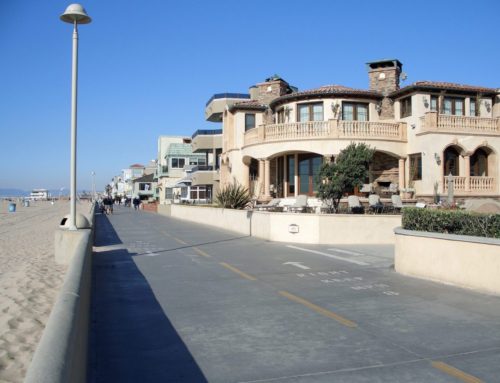Mortgage interest rates for buying a home on the Palos Verdes Peninsula are expected to rise slightly next week ending 6/13/2020. The following are excerpts from the newsletter on interest rates published by HSH Associates :
” Months and years from now, it will probably become very clear that April 2020 was the absolute depth of the COVID-19 pandemic recession. That’s not to say that we’ve moved to a place of recovery, or that nascent “green shoots” are necessarily a harbinger of a swift return to a fully-fledged economy; we haven’t, and they’re not. However, it could be said that we’re starting to move to a less-deep place of recession and that important signals about an eventual return to growth are starting to be seen. Applications for new mortgages continue on an interesting and divergent path. Overall, the Mortgage Bankers Association noted that apps were down 3.9% overall in the week ending May 29, although this was a holiday-shortened week for Memorial Day. Still, for a seventh consecutive week, applications for purchase-money mortgages increased, rising another 5.3%, back to levels that existed before the national emergency was declared. Applications for refinancing, however, declined for a seventh straight week, falling 8.6% despite new record-low mortgage rates hitting the market.
With regard to low mortgage rates, some have asserted that based on historical relationships that mortgage rates should be considerably lower now than they are, perhaps a half percentage point or more. However, at times when the risks of making mortgages are elevated (such as now) those risk premiums expand and those relationships become distorted. Some have proffered that the with the Fed pledging to buy up mortgage backed securities (“MBS’) in any numbers needed to ensure market functioning that rates should be lower. However, the point of the Fed’s intervention in MBS markets is not specifically to lower mortgage rates further (as they are already at or near record lows) but rather to keep them from rising and the markets liquid and functioning should private investors turn away from buying these instruments.
The credit markets are mostly functioning as they should. In fact, the good news on the employment front on Friday sparked a sizable rally in stocks, and in turn, and in what is a normal relationship, investors sold bonds, bought stocks and bond yields rose. In fact, the yield on the U.S. Treasury closed the week at 0.902%; this is the highest daily yield since mid-March, and if the normal transfer mechanisms in the market are working properly, this means that mortgage rates will be rising a bit next week.
While any rise is likely to produce headlines of “Why are mortgage rates rising?” keep in mind that this is actually a good thing, as it means that hopes for a brighter economic tomorrow are starting to overcome the truly bleak period from which we’re emerging. That’s a good thing, even if we have a long and difficult road ahead yet. For next week, a bump in rates seems likely, but should be muted… perhaps a tenth of a percentage point for the average offered rate for a conforming 30-year fixed that Freddie Mac reports each Thursday.”
The following are interest rate quotes from John Alvin of American California Financial Services:
| 30 Yr Fixed FHA | ||||||
| Rate | APR | |||||
| 3.000 | 4.125 | Details
|
||||
| Conforming 30 Yr Fixed up to $484,350 | ||||||
| Rate | APR | |||||
| 3.375 | 3.491 | Details
|
||||
| Conforming Jumbo 30 Yr Fixed $484,351 – $726,525 | ||||||
| Rate | APR | |||||
| 4.000 | 4.109 | Details
|
||||
| Jumbo 30 Yr. to $1.5 Mil | ||||||
| Rate | APR | |||||
| 4.500 | 4.596 | Details
|
||||
| Jumbo 7/1 ARM $1.5 Mil (higher loan amt available) | ||||||
| Rate | APR | |||||
| 4.250 | 3.614 | Details | ||||





